
From CNN’s Krystal Hur
Stocks fell sharply on Wednesday after the Federal Reserve reaffirmed its dedication to tamping down inflation.
Markets had been fickle all day, before settling in the red as investors digested the central bank’s quarter-point rate hike and looked for clues about the state of the banking sector meltdown.
Investors were heartened by the Fed’s strong hints that its aggressive pace of interest rate hikes would come to an end soon. Still, the central bank also warned that rate cuts aren’t coming this year.
“The Fed just hiked rates two weeks after the biggest bank failures since 2008. If they aren’t blinking now, there shouldn’t be any doubt about their commitment to tame inflation,” said Scott Duba, CIO at Prime Capital Investment Advisors.
A decline in regional bank stocks weighed markets down. The SPDR S&P Regional Banking ETF, which tracks small and midsized bank stocks, fell about 2.4%.
Investors continued to search for safer places to keep their cash. Gold futures rose, as did US oil benchmark West Texas Intermediate.
Wall Street is also watching for the Bank of England’s own interest rate decision, due Thursday.
Treasury yields fell after jumping earlier in the day.
The Dow fell about 532 points, or 1.6%.
The S&P 500 slipped about 1.7%.
The Nasdaq Composite declined 1.6%.
Stocks fall after Powell warns of tight financial conditions
From CNN’s Krystal Hur
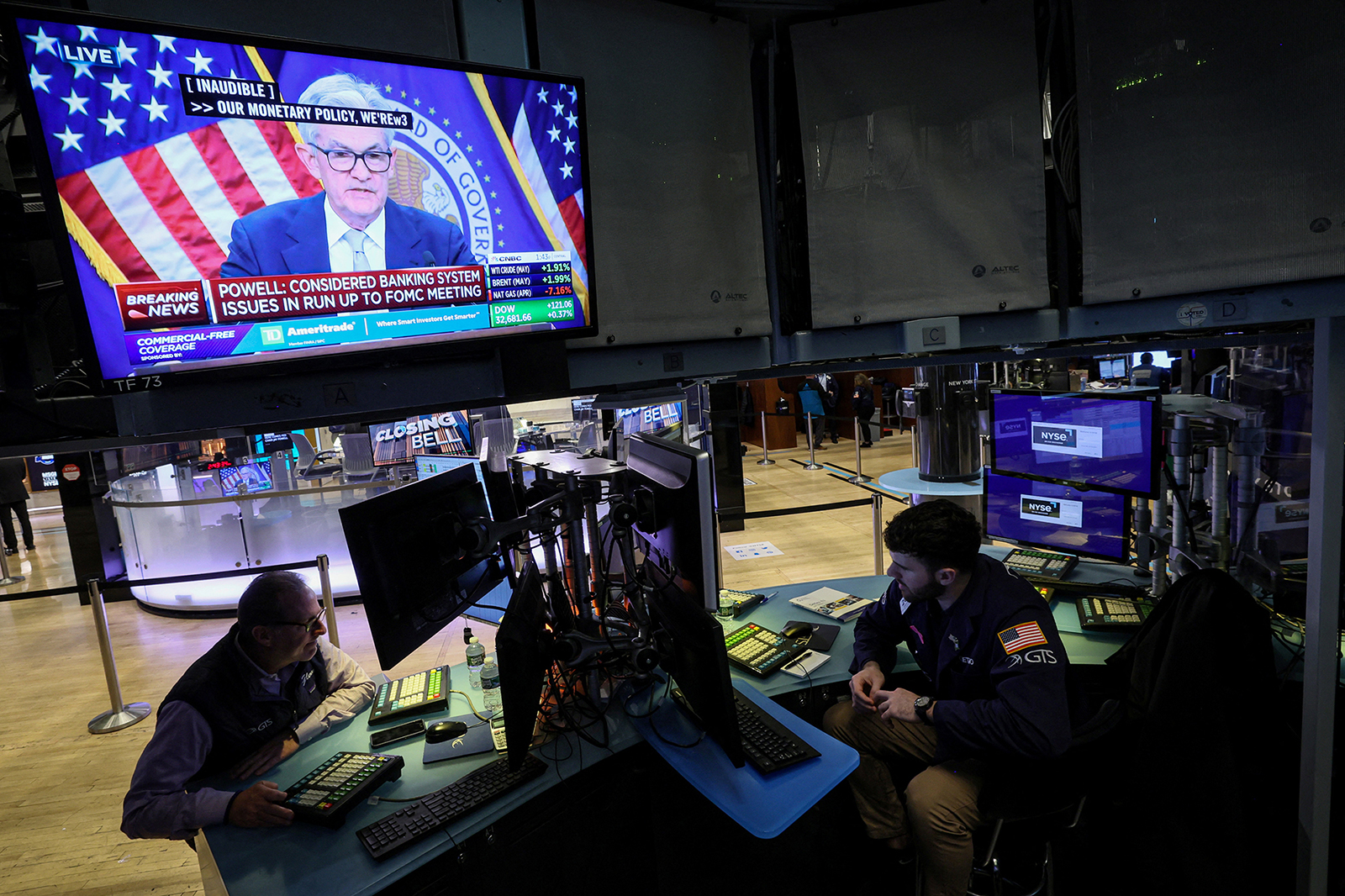
Stocks fell Wednesday after Federal Reserve Chairman Jerome Powell warned of tight financial conditions.
The Dow declined about 0.7%. The S&P 500 fell about 0.5%. The Nasdaq Composite slipped about 0.3%.
Markets initially rose after the central bank announced it would raise rates by the expected quarter point, but wavered after Powell said it’s unlikely the Fed will cut rates this year.
Powell largely declined to make projections about the banking turmoil but said the Fed needs to “strengthen supervision and regulation” of the financial sector.
Jerome Powell: The needs of the many outweigh the needs of the few
From CNN’s David Goldman
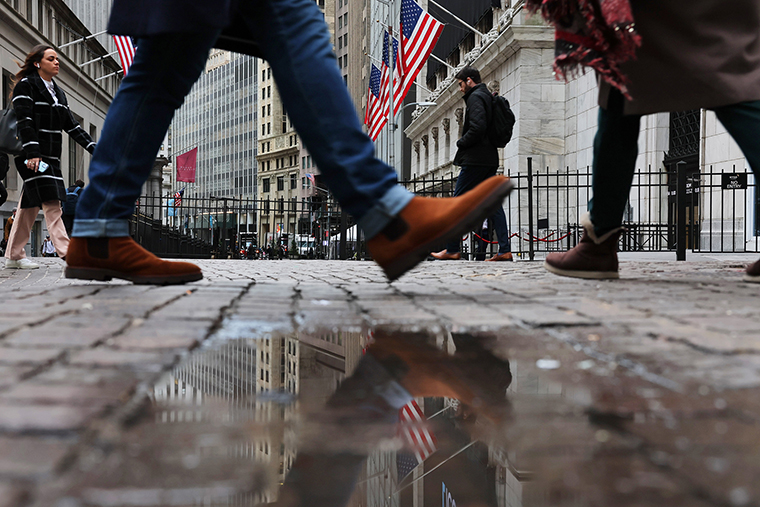
The Fed is fighting inflation by slowing down the economy, and that means unemployment will rise.
By the Fed’s own prediction, the unemployment rate will rise to 4.5% by the end of the year, up from 3.6% last month. That could translate to more than 1 million more Americans out of work by the end of 2023.
Fed Chair Jerome Powell said that’s an uncertain but acceptable outcome: “We have to bring inflation down to 2%,” he said in response to a question by CNN’s Nicole Goodkind. “There are real costs to bring it down to 2%. But the costs of failing are much higher.”
“If the central bank doesn’t get inflation back in place … you can have a long series of years where inflation is high and volatile. And it’s hard to invest capital. It’s hard for an economy to perform well. And we’re looking to avoid that,” Powell said.
“We’re very focused on getting inflation down. We know in the longer run that that is the thing that will most benefit the people we serve,” Powell added. “You can have very, very long expansions without high inflation. We had several of those. And they’re very good for people.”
Jerome Powell: The Fed needs to strengthen supervision and regulation
From CNN’s Allison Morrow
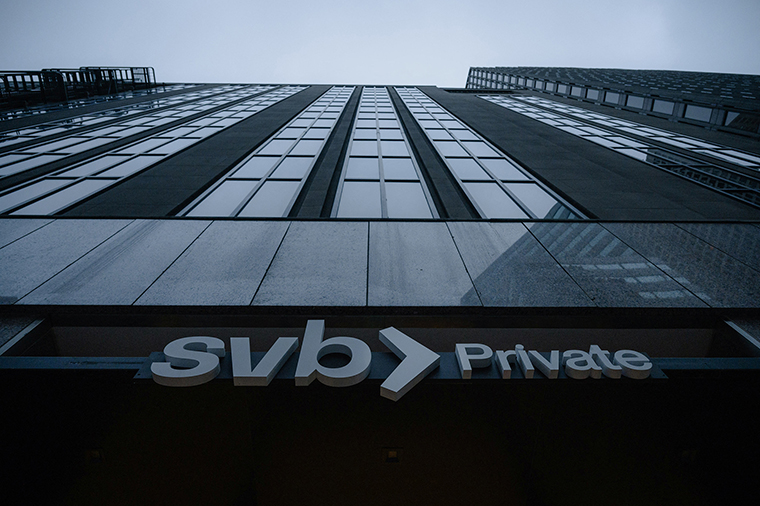
In response to the collapse of two banks and nearly two weeks of banking turmoil, Fed Chair Jerome Powell said that “it’s clear we do need to strengthen supervision and regulation,” noting the central bank would doing an internal review.
“At a basic level, Silicon Valley Bank management failed badly,” Powell said. “We now know that supervisors saw these risks and intervened … My only interest is that we identify what went wrong here.”
But Powell said the Fed wouldn’t jump to conclusions, saying it would be “inappropriate for me at this stage to offer my views on what the answers might be.”
The banking crisis is doing the Fed’s work for it
From CNN’s David Goldman
What happened to the Fed sticking to its guns and fighting inflation at all costs? Well, the problems in the banking sector may be doing the Fed’s work for it, negating the need for more rate hikes, Fed Chair Jerome Powell said Wednesday.
That’s because banks may stop lending money to some borrowers, prevent some businesses from getting loans and issue fewer mortgages. That would slow the economy and potentially lead to layoffs and a housing market slowdown.
The Fed, in its fight against inflation, has been trying to do exactly that: Slow the economy. So rate hikes may not be necessary anymore to beat back rising prices. On the other hand, it may not have the desired effect. Powell said the Fed is watching closely.
“It’s possible that these events will turn out to be very modest effects on the economy, in which case inflation will continue to be strong, in which case, you know, the path might look different,” Powell said. “It’s also possible that this potential tightening will contribute significant tightening in credit conditions over time. And in principle, that means that monetary policy may have less work to do. We simply don’t know.”
The end of rate hikes is in sight
From CNN’s Allison Morrow
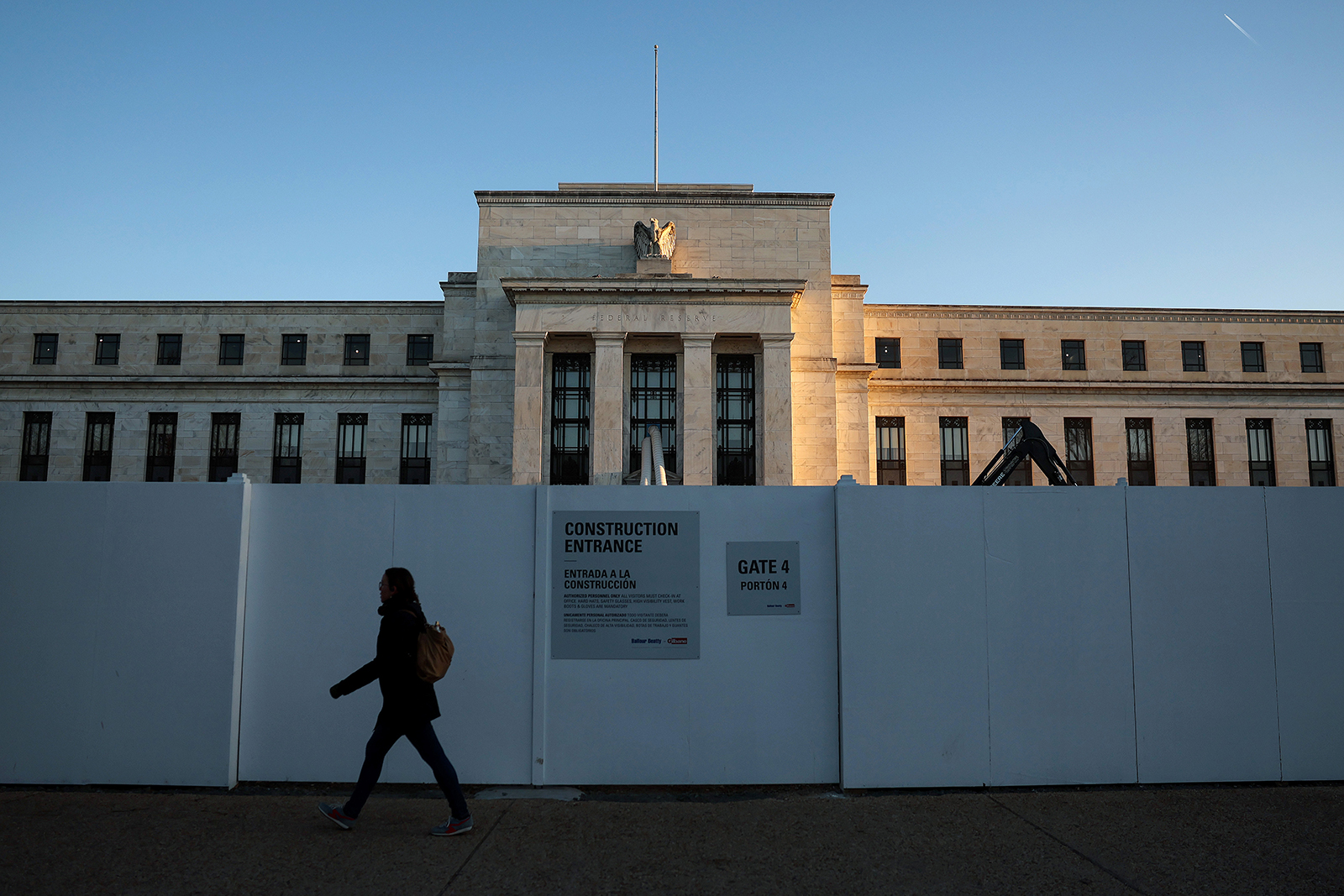
The Fed is strongly signaling that its aggressive interest rate hike regime will come to an end soon, citing robust economic conditions and inflation moving lower.
“We no longer state that we anticipate that ongoing rate increases will be appropriate to quell inflation,” Powell said. “Instead, we now anticipate some additional policy firming may be appropriate.”
Powell noted the shift from the Fed’s previous stance centers on the words “will” versus “some” and “may.” The message is that further rates aren’t guaranteed.
“The end of the rate hiking cycle is in sight,” said Jamie Cox, managing partner at Harris Financial Group. “The Fed is trying to navigate the very narrow path between defeating inflation and destroying the economy with blunt force rate hikes — even they now know the latter is a very real risk.”
Powell: ‘Our banking system is sound and resilient’
From CNN’s Allison Morrow
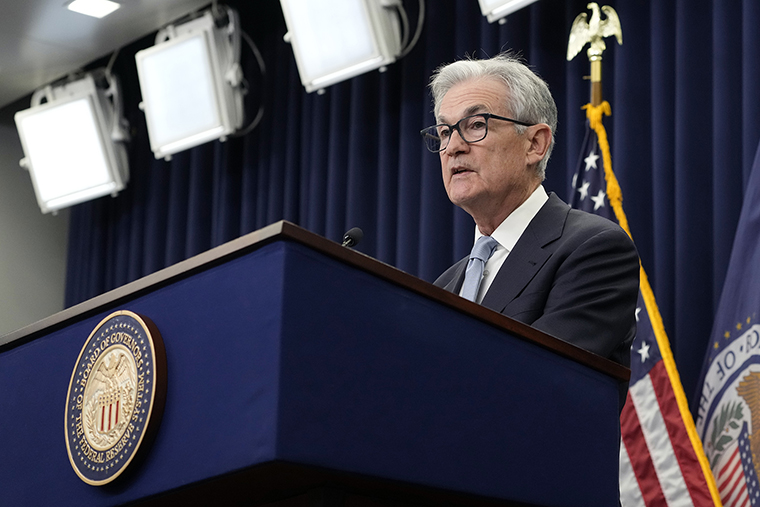
Fed chair Jerome Powell sought to reassure the world that America’s banks are, on the whole, healthy.
“Our banking system is sound and resilient with strong capital and liquidity,” he said at a news conference Wednesday. “We will continue to closely monitor conditions in the banking system and are prepared to use all of our tools as needed to keep it safe and sound.”
The Fed is raising interest rates by 25 basis points, signaling its commitment to fighting inflation despite the failures of Silicon Valley Bank and Signature Bank that sparked a selloff in bank stocks and has left similarly sized banks teetering.
Jerome Powell: We’re going to learn our lesson from the banking crisis
From CNN’s David Goldman
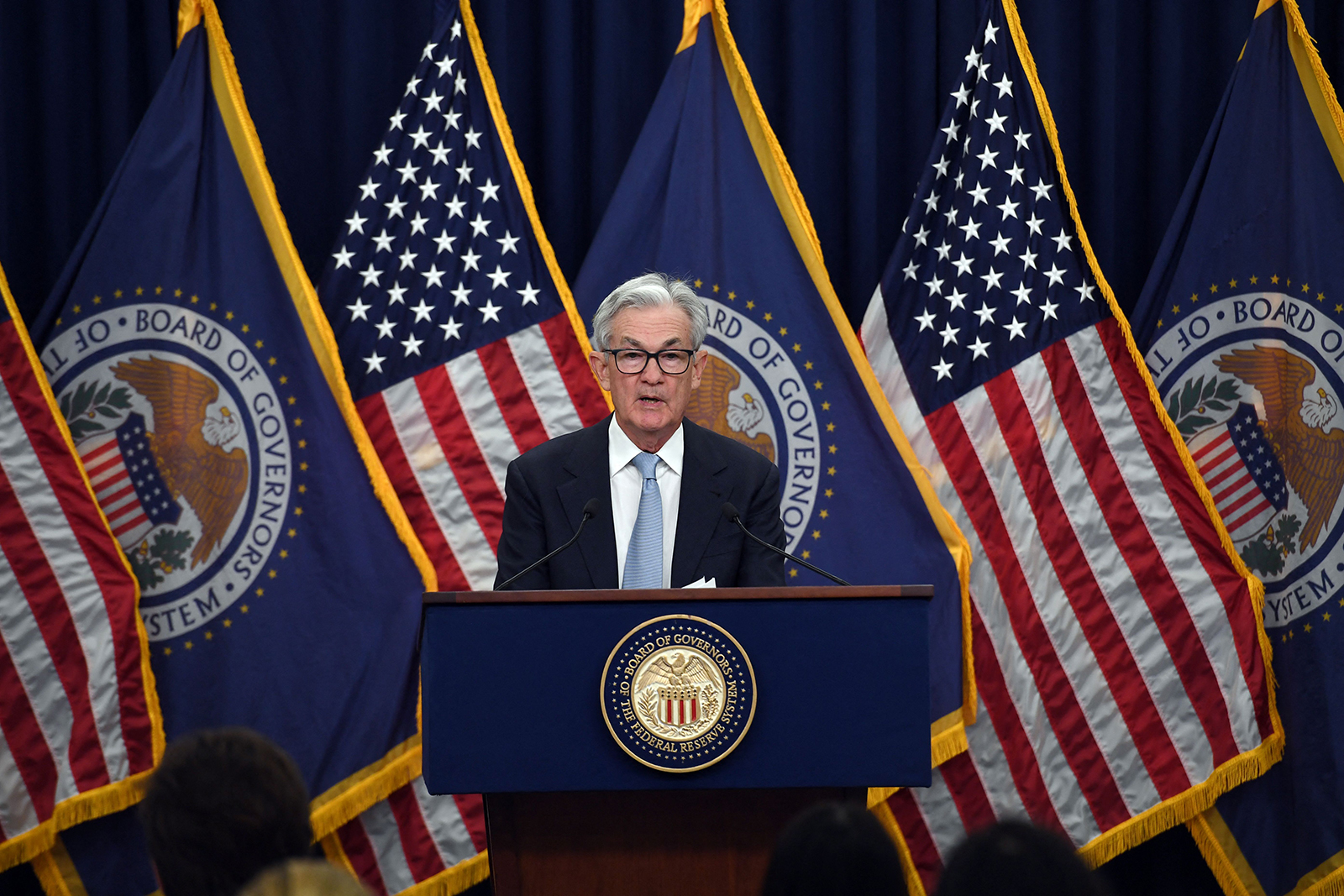
Fed Chair Jerome Powell, at a press conference Wednesday, said the Fed was committed to maintaining confidence in the banking sector.
“In the past two weeks, serious difficulties at a small number of banks have emerged,” he said. “History has shown that isolated banking problems, if left unaddressed, can undermine confidence in healthy banks and threaten the ability of the banking system as a whole to play its vital role in supporting the savings and credit needs of households and businesses.”
Powell said that threat is why US regulators worked to restore confidence by extending emergency lending to banks and increasing the availability and flow of dollars across the world. He noted that some banks currently have “unusual funding needs” as customers withdraw deposits, and the Fed’s programs have effectively helped banks get the cash they need to stay afloat.
“These actions demonstrate that all depositors’ savings in the banking system are safe,” Powell said. “Our banking system is sound and resilient. … We are committed to learning the lessons from this episode and to work to prevent episodes, events like this, from happening again.”
Fed’s policy decision was unanimous
Wednesday’s decision from policymakers to hike rates for the ninth consecutive time was unanimous. No policymaker has voted against a decision since June last year.
Fed officials raised overnight lending rates to a range of 4.75% to 5%, their highest level since September 2007. That sends a clear message that restoring price stability remains a top priority.
This was the first vote for the committee’s newest member, Chicago Federal Reserve President Austan Goolsbee.
